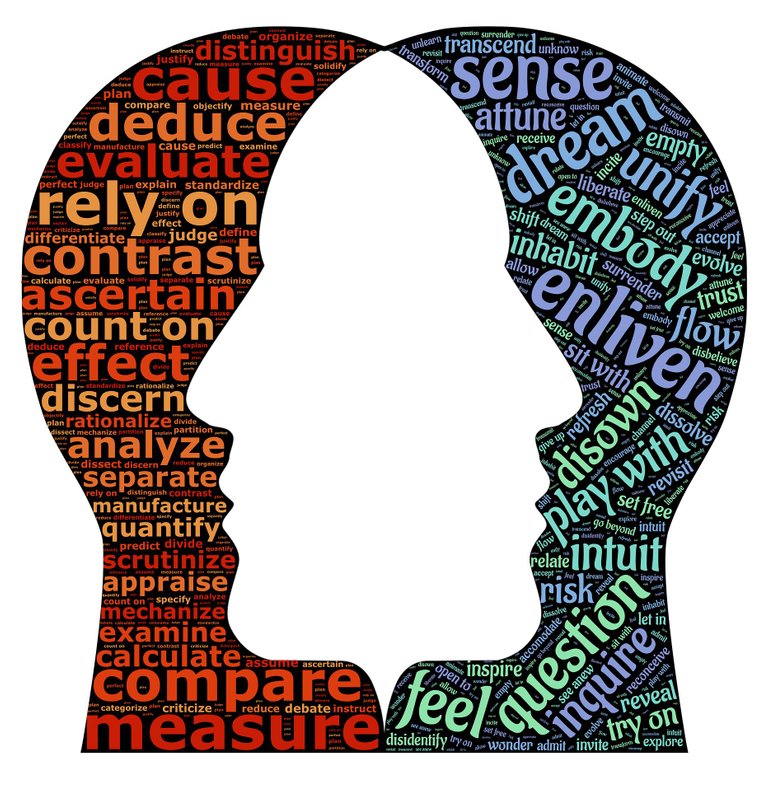
People often refer to intuition as a strange feeling that hints or prompts to certain actions although an immediate conscious logic might not rectify them. Intuition might even offer a solution that goes against the apparent logic. That “feeling” could be related to an evaluation of a person, design, medical diagnosis, or risky situation.
As for me, intuition is not a feeling, but a knowledge base, accumulated by a subconscious mind that is marshaled to one’s consciousness by means of a biochemical algorithm - feeling.
It is said that information is a mother of intuition and that’s no accident. I imagine consciousness operates within limited active memory and is generally limited. Much of what a person reads, sees, and thinks disappears from their active memory and with time gets substituted with more current cerebral objects.
Not so with the subconscious mind. Everything that a person saw, read, or thought is stored somewhere among trillions of memory cells. More so, any question that people ever posted to themselves and then forgot without getting the answer didn’t get forgotten in the subconscious mind, continuing to percolate endlessly inside it, screening information, marshaled to it by a consciousness that could complete the puzzle.
That’s why seasoned professionals can get surprised how easily they can comprehend ideas, logical constructs, and handle practical tasks that were so hard to understand in the days of their schooling. As they read, listened, and attempted to memorize the material even without a clear understanding of it, their subconscious mind also did its part of the learning. I think this is what Hegel meant by the transition from quantity to quality. It’s when after reading the unclear passage tenth time a person suddenly understands it.
Alternatively, it often happens that good specialists in one area, where their intuition leads them to many correct decisions, also think that intuition is an overarching entity and can lead to equally correct decisions in any other area of life. The reason for making this conclusion comes from the fact that a person experiences the same “feeling” as they experience while making decisions in their field of expertise.
Unfortunately, that assumption rarely holds water. The set of feelings that a person can experience is limited and the same feeling can mean different things. In other words, the feeling could be the signal from the subconscious mind about one of the other decisions but could be caused by an entirely different reason. It’s like a mute person that can only produce a very limited set of sounds.
Thus, I think people should lean on inspiration carefully and primarily in the area where they already have considerable expertise or else you experience might end as follow
A cowboy is riding the horse through the prairie and sees a tree.
Intuition: “Ride to that tree.”
The cowboy rode toward the tree.
Intuition: “Stop!”
The cowboy stops his horse in front of a tree.
Intuition: “Climb the tree.”
The cowboy climbs the tree.
Intuition: “Move alone this branch.”
The cowboy obeys.
Branch breaks. The cowboy falls.
Intuition: “Ouch…You are going to crash!”